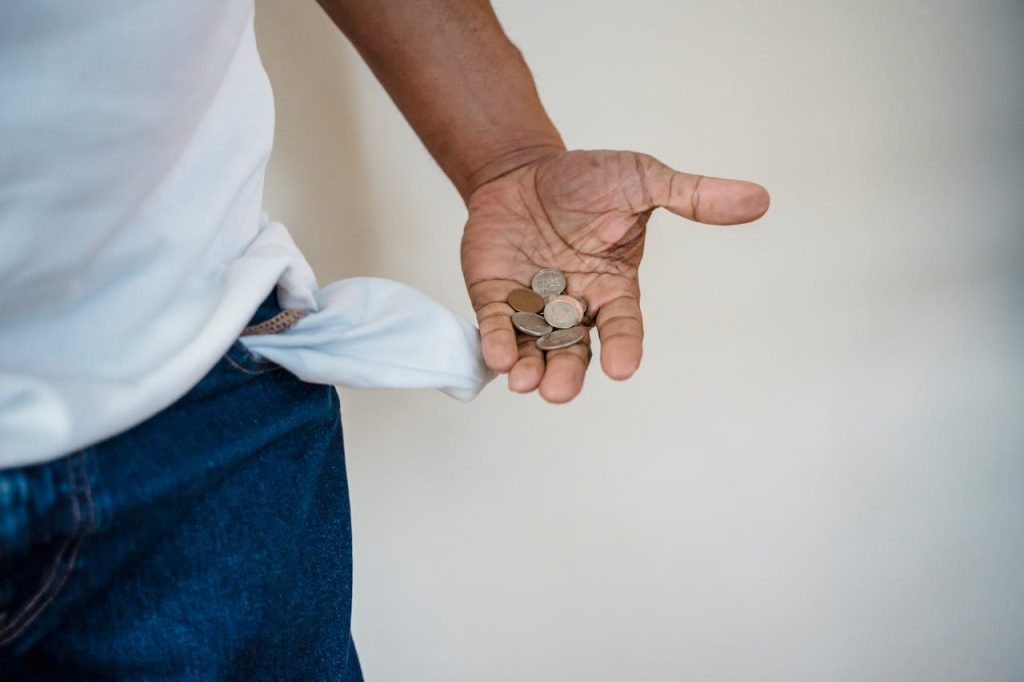
Image Source: pexels.com
Have you ever found yourself second-guessing every money move or feeling a pit in your stomach when it’s time to make a financial choice? You’re not alone. Many people unknowingly let fear drive their financial decisions, often leading to missed opportunities or unnecessary stress. Recognizing when fear is in the driver’s seat is the first step toward building a healthier relationship with your money. If you want to break free from anxiety and start making confident, informed choices, it’s time to look for the warning signs of fear-based financial decisions. Let’s dive into the seven most common signals—and what you can do about them.
1. You Avoid Checking Your Accounts
If you find yourself dreading the thought of logging into your bank account or opening credit card statements, it’s a classic sign that fear is influencing your financial decisions. Avoidance might feel safer in the moment, but it can lead to bigger problems down the road, like missed payments or overdraft fees. Facing your numbers head-on, even if they’re not what you hoped, is the first step to regaining control. Try setting a weekly “money date” with yourself to review your accounts in a low-pressure way. Over time, this habit can help reduce anxiety and make financial decisions feel less overwhelming.
2. You Make Impulse Purchases to Feel Better
Retail therapy might offer a quick mood boost, but if you’re regularly making unplanned purchases to soothe stress or anxiety, fear could be running the show. These impulse buys can quickly derail your budget and leave you feeling even more out of control. Instead, pause before making a purchase and ask yourself if it’s truly necessary or just a reaction to stress. Practicing mindfulness and finding healthier ways to cope with emotions—like going for a walk or talking to a friend—can help you break the cycle of fear-based financial decisions.
3. You’re Paralyzed by “What Ifs”
Do you constantly worry about worst-case scenarios, like losing your job or an unexpected expense wiping out your savings? While it’s smart to be prepared, excessive worry can lead to decision paralysis. You might avoid investing, saving, or even spending on things you need because you’re stuck in a loop of “what ifs.” Building an emergency fund and learning about risk management can help you feel more secure. For example, the Consumer Financial Protection Bureau offers tips on building a solid emergency fund, which can provide peace of mind and reduce fear-based financial decisions.
4. You Stick with the Status Quo—Even When It’s Not Working
If you’re afraid to make changes to your financial plan, even when you know it’s not serving you, fear might be holding you back. Maybe you’re sticking with a high-fee bank account or an underperforming investment because the idea of switching feels too risky. Remember, doing nothing is still a decision—and sometimes, it’s the riskiest one. Take small steps to research your options and seek advice from trusted sources. Over time, you’ll build the confidence to make changes that better align with your goals.
5. You Let Others Make Money Decisions for You
Handing over control of your finances to a partner, family member, or even a financial advisor without asking questions can be a sign of fear-based financial decisions. Maybe you worry you’ll make a mistake, or you don’t feel knowledgeable enough to take charge. But your financial future is too important to leave entirely in someone else’s hands. Start by educating yourself—there are plenty of free resources, like MyMoney.gov, that can help you build confidence and take a more active role in your money management.
6. You’re Overly Conservative with Investments
Playing it safe with your investments isn’t always a bad thing, but if you’re avoiding all risk out of fear, you could be missing out on long-term growth. Keeping all your money in a savings account or low-yield investments might feel secure, but it can actually erode your purchasing power over time due to inflation. Educate yourself about different investment options and consider speaking with a financial advisor to find a balance between risk and reward that matches your comfort level. Remember, fear-based financial decisions can cost you more in the long run than taking calculated risks.
7. You Constantly Compare Yourself to Others
If you’re always measuring your financial progress against friends, family, or social media influencers, it’s easy to let fear and insecurity dictate your choices. This can lead to overspending, taking on unnecessary debt, or feeling like you’re never doing enough. Instead, focus on your own goals and values. Everyone’s financial journey is different, and what works for someone else might not be right for you. Setting personal milestones and celebrating your progress—no matter how small—can help you stay motivated and make decisions based on your needs, not your fears.
Take Back Control: Make Confident Money Moves
Recognizing the signs of fear-based financial decisions is a powerful first step toward a healthier, more confident approach to money. By facing your fears, educating yourself, and taking small, consistent actions, you can shift from reactive to proactive financial decision-making. Remember, everyone feels anxious about money sometimes, but you don’t have to let fear call the shots. Start today by identifying one area where fear might be influencing your choices and commit to making a positive change.
What’s one financial decision you’ve made out of fear—and how did you overcome it? Share your story in the comments below!
Read More
Vacation Without Breaking the Bank
The Definition of Irony (or Why You Should Know What You’re Doing)

Travis Campbell is a digital marketer/developer with over 10 years of experience and a writer for over 6 years. He holds a degree in E-commerce and likes to share life advice he’s learned over the years. Travis loves spending time on the golf course or at the gym when he’s not working.




